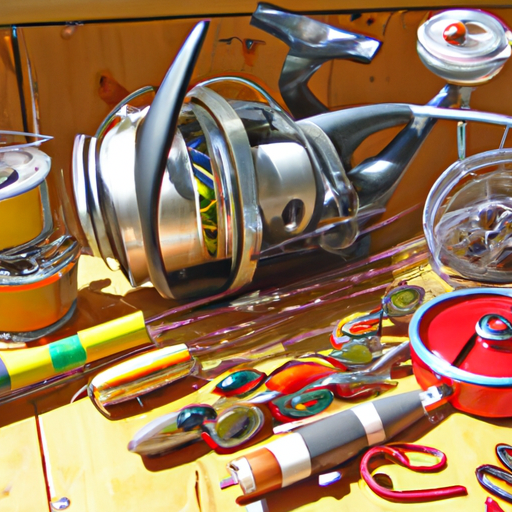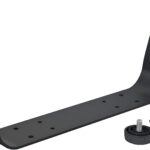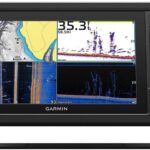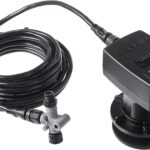Are you passionate about fishing? Is your fishing gear your pride and joy? In the article “Fishing Gear Maintenance For Lasting Performance”, you will encounter handy tips and tricks on how to properly preserve and care for your fishing equipment. This article ensures to guide in keeping your fishing gear at its peak for the longest time, allowing you greater chances of landing that big catch. Brace yourself for an insightful journey of learning the art of consistent fishing gear maintenance.
Understanding the Importance of Fishing Gear Maintenance
Maintaining your fishing gear is just as crucial as the gear itself. Looking after your fishing equipment provides several benefits that will make your fishing experience much more enjoyable.
Enhancing the longevity of your gear
Just like anything else that you use repeatedly, fishing gear is subject to wear and tear. Proper maintenance of your fishing gear can significantly extend its lifespan, saving you money in the long run as you don’t have to replace it as frequently. By keeping your equipment clean and in good working condition, you’ll ensure your gear will last for many fishing trips to come.
Ensuring optimal performance during fishing
For optimal performance of your fishing gear on the water, routine maintenance is necessary. Dirt, salt, and grime can cause your gear to perform sub-optimally, affecting your fishing outcomes. Keeping your gear clean and functional will ensure that it performs at its best every time you cast your line.
Avoiding unexpected gear failures
Nothing can ruin a fishing trip faster than gear failure. By regularly maintaining your equipment, you can avoid the surprise and disappointment of broken fishing poles, tangled fishing lines, or faulty fishing reels that can cost you your catch of the day.
Basic Cleaning Practices for Fishing Gears
Maintaining your fishing gear starts with regular, simple cleaning. This doesn’t have to be a chore – it can be incorporated into the process of packing up after a fishing trip.
Timely cleaning after every fishing trip
Make it a point to clean your gear immediately after every fishing trip. This ensures that any dirt or grime that your equipment may have picked up doesn’t have time to harden or cause damage.
Using the right cleaning tools
When cleaning your gear, make sure to use the right tools. A soft cloth for drying, a small brush for scrubbing, and mild soap are usually sufficient for most fishing gear.
Properly drying equipment before storing
After washing your gear, it’s essential to let it dry thoroughly before storing it. This helps prevent rusting and degradation.
Maintaining Your Fishing Rods
Fishing rods are your primary tools for catching fish, so it’s especially important to care for them properly.
Regularly checking for damages
Inspect your fishing rods for damages frequently. Look for signs of wear and tear, such as cracks or nicks. Pay extra attention to the rod’s guides as they experience a lot of wear and tear. Catching damage early and getting it repaired can save the rod from further harm.
Appropriate cleaning of rod
Make sure to clean your fishing rod thoroughly after each use. Remove dirt and grime with a soft cloth and mild soap, and ensure you rinse thoroughly to remove all soap residue.
Oiling the moving parts
The moving parts on your fishing rod, such as the reel seat, should be oiled regularly to ensure smooth operation. Use a light oil designed for fishing equipment.
Proper storage of fishing rods
When storing your fishing rods, make sure they’re dry and clean. Also, try to store your rods vertically to prevent them from bending.
Taking Care of Reels
Your fishing reels work hard during each fishing trip, and they deserve particular attention during your gear maintenance routine.
Routine cleaning schedules
Set a cleaning schedule for your reels and stick to it. This could be a thorough clean after each fishing trip or a smaller clean after a few trips, depending on the conditions you usually fish in.
Lubrication for smooth performance
Proper lubrication ensures that your fishing reels operate smoothly. Make sure to use a fishing-specific lubricant – these are designed to withstand the rigours of fishing.
Inspecting for mechanical issues
Make it a habit to inspect your reels for any mechanical issues. Regular checks can help you spot problems early, allowing you to repair or replace parts as needed.
Storing reels correctly
Store your reels in a dry, cool place away from direct sunlight. Try to avoid extreme temperatures and humidity, which can cause your reels to corrode or degrade more quickly.
Ensuring Longevity of Fishing Lines
The fishing line is the connection between you and your catch. As such, taking proper care of your fishing line is critical in maintaining a successful fishing experience.
Regular inspection for wear and tear
Inspect your fishing lines after each fishing trip. Look for signs of wear and tear, such as fraying or discolouration.
Thorough cleaning of fishing lines
Clean your fishing lines regularly to remove any dirt, grime or salt that could degrade the line over time. Use warm water and mild soap, then rinse thoroughly and allow the line to dry completely before re-spooling it on your reel.
Another way to prevent line twisting
Prevent fishing line from twisting by using a line conditioner. This product helps you cast easier and farther and extends the life of your line.
Appropriate storage for fishing lines
Store your fishing lines in a cool, dark place when not in use. Exposure to sunlight and heat can deteriorate the lines, making them weaker.
Hooks and Sinkers Maintenance
Hooks and sinkers are important components in your fishing gear arsenal. Maintaining them is just as important as the rest of your gear.
Checking for rust and damage
Regularly check your hooks and sinkers for rust or other damage. Small damages can lead to big problems down the line, like a lost catch or broken line.
Proper cleaning techniques
Ensure your hooks and sinkers are cleaned properly after each use. Any grime, dirt or bait left on the hook or sinker can cause it to corrode over time.
Keeping hooks sharp
Keep your hooks sharp for the best chance at setting a solid hook in a fish’s mouth. You can use a simple hook file or a hook sharpener to maintain the sharpness of your hooks.
Ensure sinkers are fastened securely
Check that your sinkers are fastened securely to your line. Loose sinkers can lead to broken lines, lost fish or damaged gear.
Care for Fishing Baits and Lures
Both live and artificial baits require certain care to maintain their effectiveness.
Regular cleaning after use
Clean your artificial lures after each use. This removes any residual bait, grime or saltwater that might interfere with the lure’s effectiveness.
Inspecting for damages
Regularly inspecting your lures and baits can prevent a lost fish. Check for chipped paint, rusted hooks, or any other signs of damage.
Storing baits and lures correctly
Proper storage of your lures and baits can prolong their lifespan. Keep them in a dry, cool place and separate similar types to avoid tangling.
Maintaining Tackle Boxes and Bags
tackle boxes and bags can be overlooked when it comes to the maintenance of fishing gear. However, they require care just like the rest of your gear.
Dumping unused bait immediately
Dump any unused bait after fishing. Leaving bait in your tackle box or bag can rot and bring about foul odours, which can be hard to remove.
Regular emptying and cleaning of bags/boxes
Regularly empty and clean your tackle boxes or bags. This prevents dirt, grime, or some other residue from building up.
Storing in a dry place to avoid moisture build up
Always store your tackle boxes and bags in a dry place to avoid any build-up of moisture. Too much moisture can lead to the rusting of hooks or other metal gear.
Protecting Your Fishing Gear
Protecting your fishing gear from damage is another key aspect of maintenance. This can be done in several ways:
Using gear cases and protectors
Gear cases and protectors provide an extra layer of protection for your fishing gear. They prevent your gear from getting damaged during transportation or storage.
Preventing gear exposure to harsh elements
Try not to expose your gear too much to harsh environmental elements like direct sunlight, extreme heat, or saltwater. These can speed up the wear and tear process.
Keeping your gear safe while transporting
Safe transportation of your fishing gear is also very important. Be sure to secure your fishing rods, reels, and other equipment during transportation to prevent any unwanted damage.
Scheduling Fishing Gear Maintenance
Having a maintenance schedule aids in keeping your fishing gear at its best.
Implementing a routine maintenance schedule
Implementing a routine maintenance schedule will ensure that you never forget to maintain your fishing gear. This routine will largely depend on how often you fish, but in general, it’s a good idea to clean your gear after every fishing trip.
Performing immediate maintenance after a fishing trip
Performing immediate maintenance after a fishing trip can prevent any potential damage that dirt, grime, or saltwater could cause if left unchecked.
Scheduling in-depth maintenance during off-season
During your off-fishing season, schedule a more in-depth maintenance activity for your gear. This is the perfect time to check every nook and cranny of your gear, perform necessary repairs, or replace any worn-out parts.
In conclusion, regular maintenance of your fishing gear will ensure that it lasts longer, performs better, and prevents unexpected failures. By following the tips provided in this article, you will be able to reap these benefits and more.










